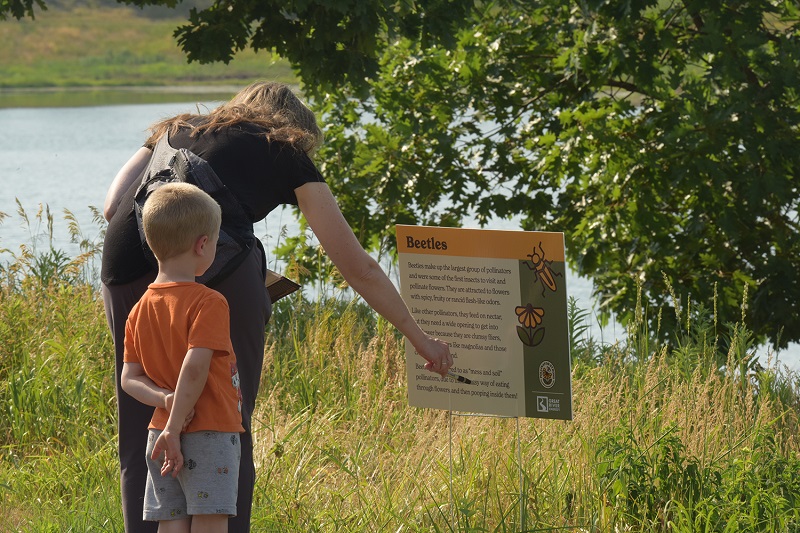Great River Energy celebrates commitment to pollinator habitat
Great River Energy employees and their families gathered one evening during National Pollinator Week at the company’s Maple Grove building to celebrate the launch of the cooperative’s Pollinator Strong initiative.
The event was attended by more than 170 people, including guests from Minnesota Native Landscapes and the City of Maple Grove, including Mayor Mark Steffenson.
Pollinator Strong represents Great River Energy’s commitment to plant and restore additional acres of pollinator habitat across current and future eligible sites to help conserve pollinators and their habitats.
Highlights of the event included a scavenger hunt that challenged participants to complete “pollinator passports” using information they learned about various plants and insects while exploring Great River Energy’s pollinator habitat in Maple Grove.

“The Pollinator Strong initiative aims to protect and promote pollinator habitats in Minnesota,” said David Ranallo, Great River Energy’s director of culture, communications, marketing and member relations. “Great River Energy has pledged to double our commitment pollinator-friendly habitat, and it’s also a double win considering the return on investment with not having to mow, water or treat managed turf grass.”
More than 85% of the world’s flowering plants — including the plants that produce fruit, vegetables, chocolate, coffee, nuts and spices — need pollinators such as birds, bees and butterflies. However, these pollinators are declining due to a variety of threats, especially changes in how land is used.
Because Great River Energy has a big footprint in Minnesota, the cooperative has been able to develop more than 300 acres of pollinator-friendly land in Minnesota. Pollinator Strong will educate people about the importance of pollinators and how to protect them. It also offers resources for and financial support to landowners who want to create or enhance pollinator habitats on their property.
Great River Energy intends to continue expanding the program to further protect pollinators and their habitats.

 " data-object-fit="cover">
" data-object-fit="cover">
 " data-object-fit="cover">
" data-object-fit="cover">